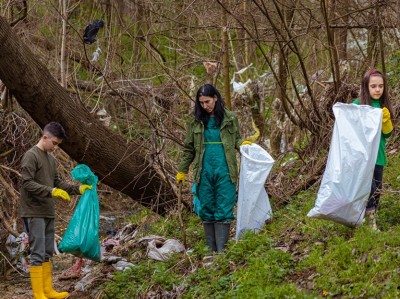In December, an academic incident made headlines in Brazil. An ad hoc reviewer for the National Council for Scientific and Technological Development (CNPq), one of the country’s main federal funding agencies, told social scientist Maria Carlotto that her pregnancies had held back her career. Carlotto tweeted about the comment, sparking general outrage and broader discussion of the rigid mindset concerning career progression in academia. Such outdated views have serious consequences: for more than 20 years, women have received only 35% of CNPq’s prestigious research productivity scholarships, and Black and Indigenous women are completely absent from the top ranks of CNPq fellowships.
Worldwide, mothers are too often pushed out of academia. But we are stepping up to push for a revolution in academia. Individuals and groups affected by the hostile academic environment should unite.

A call to create funding equity for researcher-mums
By organizing to seek change, mothers put ourselves at the forefront of work to reshape academic culture. Our efforts extend beyond personal struggles — we are architects of a transformative movement. The struggle for change spearheaded by mothers yields benefits for the entire academic community.
Carlotto’s experience illuminates the hostility of the academic system towards those who do not follow a direct career path. This harms many in academia, not just mothers: people with caring responsibilities; those with disabilities or chronic illnesses; and the list goes on. Motherhood can also intersect with factors such as ethnicity and race to amplify disparities. Fixation on a narrow idea of success often leads to burnout, mental-health issues and the abandonment of promising careers.
I know this from personal experience. I am a mother of three as well as a molecular biologist at the Institute of Biosciences and the Centre for Biotechnology at the Federal University of Rio Grande do Sul in Porto Alegre, Brazil. Before motherhood, my career was making a steady ascent, marked by publications, grants and mentorship roles in graduate programmes. Everything changed after my first child was born in 2013. In 2014, I had my last grant approved in molecular biology. After that, all my applications were denied, with the comment that my productivity did not match that of my peers. But this was never a fair comparison: it included no recognition that I had taken breaks for parental leave. Pauses in my career were seen as impediments, conflicting with the myth of the ideal academic.
Becoming a mother did not render me incapable of being a scientist, but the system nearly made me give up. Feeling unsupported, I contemplated leaving science.

In Brazil, one in two female researchers has faced sexual harassment
Against all odds, I persisted and eventually founded the Parent in Science Movement. The organization has established partnerships with many others worldwide, including the international non-profit group Mothers in Science. In January 2023, a global movement of mothers in science launched a global call to action, requesting that funders take measures to make science truly fair for us.
These efforts have led to concrete changes in Brazil. In 2021, a new field was added to Lattes, a database of all Brazilian scientists’ CVs, recognizing that career breaks of all kinds — not just maternity leave — are part of the academic journey. In 2023, the Rio de Janeiro state funding agency FAPERJ introduced a career-restart grant for mothers in collaboration with the Parent in Science Movement and the Serrapilheira Institute, a private research-funding institute in Rio de Janeiro. This initiative — pioneering in Brazil and Latin America — will make its first call for grant applications this year. It aims to support at least 21 proposals from mothers who are advancing their careers after a hiatus.
In response to the ad hoc reviewer’s comments about Carlotto’s pregnancies, the Parent in Science Movement wrote to the CNPq expressing concern and outlining a plan for a fair and inclusive academic space. We recommended actions such as setting concrete goals for increasing the representation of historically under-represented groups; creating a CNPq equity, diversity and inclusion committee; ensuring that all CNPq advisory committees have a diverse gender, racial and regional composition; and revising evaluation criteria for funding and scholarships. Under pressure from the academic community, the CNPq adopted maternity criteria in all committees. This means that when evaluating the scientific productivity of scholarship applicants, the evaluation period is extended by two years for each childbirth or adoption — a significant step. The agency also pledged to investigate further reports of prejudiced opinions being aired during the 2023 call for funding.
These changes show how our advocacy can transform academia.
We need a unified front, in which individuals and groups affected by the hostile academic environment — which is all of us — work towards a common goal. All university administrators and academics, particularly those in privileged positions, must engage in open dialogues, challenge existing norms, make concrete changes and recognize that people have lives and obligations outside work. Funders and institutions must adapt their structures to accommodate the multifaceted lives of individuals. A flexible and supportive environment is the only way academia can attract the scientists it needs.
Competing Interests
Table of Contents
The author declares no competing interests.
